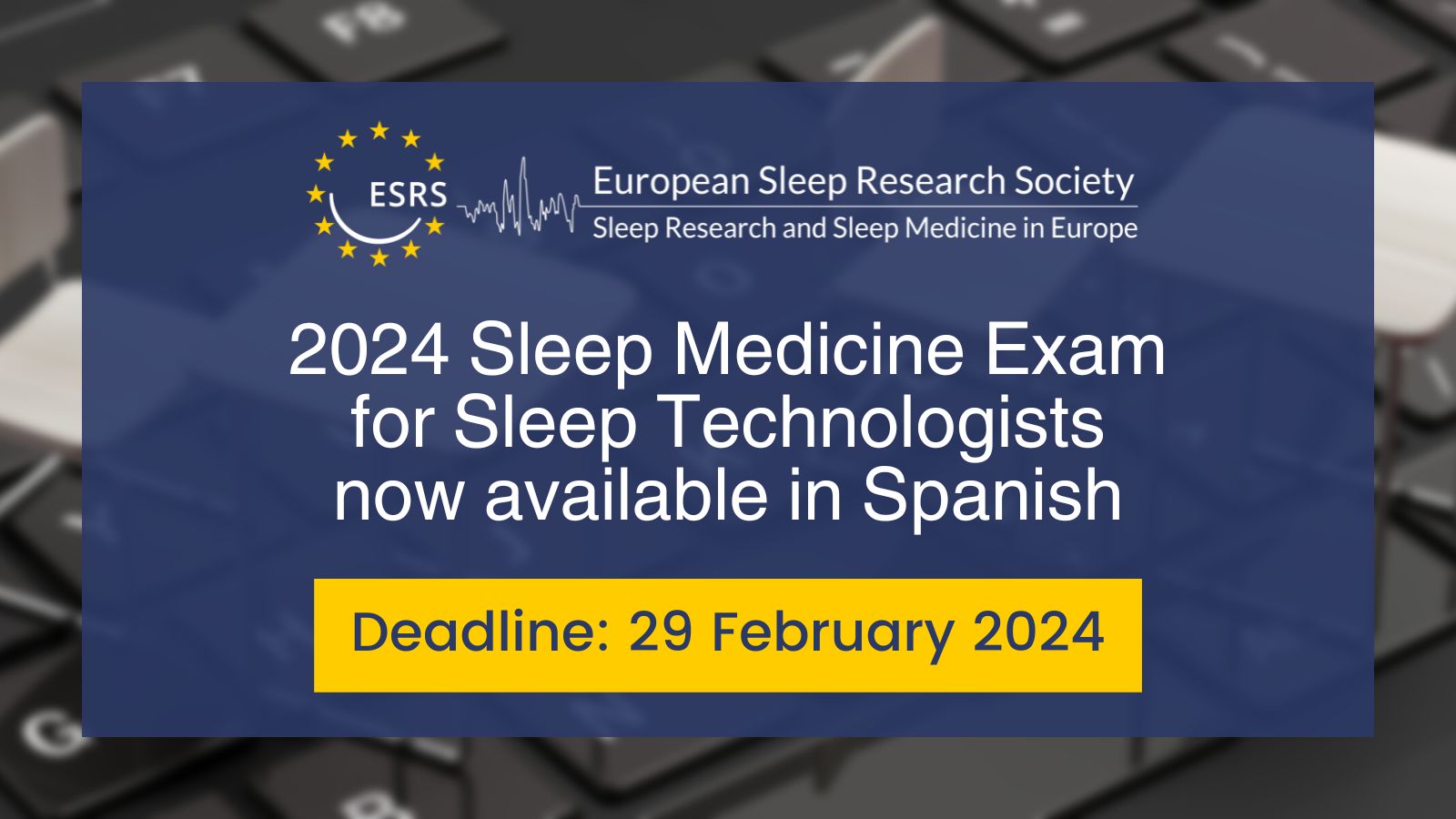Sleep Medicine Examination for Sleep Technologists in Spanish
The European Seep Research Society (ESRS) is pleased to announce that for the first time in the eleven-year history of the Sleep Medicine Examination for Sleep Technologists, it will be offered in two languages: English and Spanish. This applies to both the on-site examination on 24 September and the online examination on 25 September, to be held alongside Sleep Europe 2024, the 27th congress of the European Seep Research Society in Seville, Spain.
This one-time offering of the Spanish edition is supported and sponsored by the Spanish national sleep society: Sociedad Española del Sueño (SES). This joint effort between the ESRS and SES is the first step in the direction of making the examination more accessible in other languages.
President of the European Society of Sleep Technologists, Carlos Teixeira is thrilled about this milestone, as it underscores the global significance of sleep technology and makes the certification process more accessible to a broader range of sleep technologists. Listen to his complete statement below.
In light of this milestone development, the application deadline for the Sleep Medicine Examination for Sleep Technologists will be extended to 29 February 2024, instead of 31 January 2024.
Anyone interested in taking the examination in Spanish can do so without needing to prove competency in the language. It is also not a requirement to live in Spain or to be a member of SES. Additional requirements for the Sleep Medicine Examination for Sleep Technologists can be found here.
On a related note, are you a native Spanish speaker and interested in becoming more active in the ESRS? The Digital & Communications Committee will be embarking on a new project to gradually translate selected website content into Spanish (and other languages later on). Spanish was chosen as the first language for translation to align with the hosting of Sleep Europe 2024 in Seville, Spain.
As such they have issued a call for interested members to proof-read, and lightly edit content translated by a software program. Please contact the DCC if you are interested or for further information.
This is not a paid position, it is entirely voluntary. However, you will receive a copy of the ESRS Sleep Medicine Textbook 2nd Edition for your work on this project.
Recent publications from ESRS members
- Peraita-Adrados et al. (2023). A unique association? A narcolepsy type 1 case comorbid with Primary Biliary Cholangitis. Sleep Med.
- Topalidis et al. (2023). From Pulses to Sleep Stages: Towards Optimized Sleep Classification Using Heart-Rate Variability. Sensors (Basel).
- Blume et al. (2023). Effects of calibrated blue-yellow changes in light on the human circadian clock. Nat Hum Behav.
- Eigl et al. (2023). On the Efficacy of a CBT-I-Based Online Program for Sleep Problems: A Randomized Controlled Trial. Clocks Sleep.
- Pagh-Berendtsen et al. (2023). Downregulation of hypocretin/orexin after H1N1 Pandemrix vaccination of adolescent mice. Sleep.
- Bovenzi et al. (2023). Parkinson’s disease motor progression in relation to the timing of REM sleep behavior disorder presentation: an exploratory retrospective study. J Neural Transm (Vienna).
- Bjorvatn et al. (2023). The associations between different types of infections and circadian preference and shift work. Chronobiol Int.



